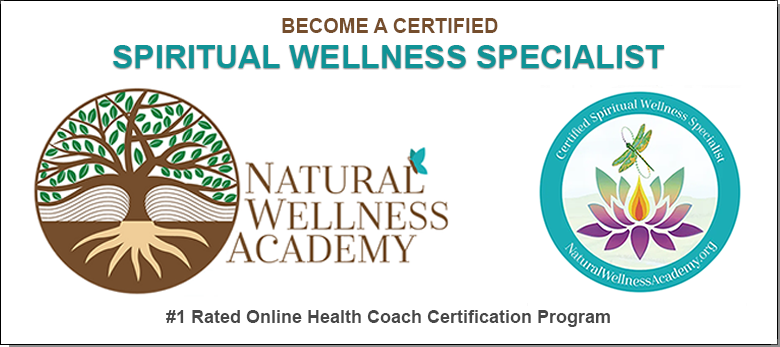
In today’s fast-paced world, many individuals find themselves searching for a deeper sense of purpose and meaning in their lives. Amidst this quest, spiritual wellness emerges as a crucial aspect of overall well-being, connecting the mind, body, and soul. At the heart of this journey is the role of a Spiritual Wellness Specialist, a professional dedicated to guiding others toward discovering their true purpose.
Contents
- Understanding Spiritual Wellness
- The Role of a Spiritual Wellness Specialist
- Techniques and Tools Used by Spiritual Wellness Specialists
- The Benefits of Working with a Spiritual Wellness Specialist
- How to Become a Spiritual Wellness Specialist
- References
Understanding Spiritual Wellness
Spiritual wellness is a multifaceted concept that plays a pivotal role in an individual’s overall well-being. It goes beyond physical and mental health, touching upon the essence of who we are and our place in the world. By exploring spiritual wellness, we gain insight into how it influences our life purpose and enriches our daily experiences.
Core Concepts of Spiritual Wellness
Spiritual wellness encompasses a sense of inner peace, purpose, and connection to something greater than oneself. It involves the pursuit of meaning and the development of personal values and beliefs. This aspect of wellness encourages individuals to reflect on their life’s direction, fostering a deeper understanding of themselves and their goals. It is often associated with practices that nurture the soul, such as meditation, prayer, and self-reflection.
How Spiritual Wellness Differs from Physical and Mental Wellness
While physical wellness focuses on the health of the body and mental wellness addresses the mind, spiritual wellness is concerned with the soul. Physical wellness includes activities like exercise and nutrition, aiming to maintain bodily health. Mental wellness involves managing stress, emotions, and cognitive functions. Spiritual wellness, on the other hand, is about finding meaning and purpose in life, creating a sense of balance and fulfillment that transcends the physical and mental realms.
The Connection Between Spiritual Wellness and Life Purpose
Spiritual wellness is intricately linked to an individual’s sense of purpose. When we understand our purpose, we can align our actions and decisions with our core values, leading to a more meaningful and satisfying life. A strong sense of purpose provides direction and motivation, helping us navigate challenges and stay committed to our goals. Spiritual wellness encourages us to seek and embrace this purpose, enriching our lives and those around us.
The Role of a Spiritual Wellness Specialist
A Spiritual Wellness Specialist is a professional dedicated to helping individuals achieve a balanced and meaningful life through spiritual growth. These specialists provide guidance and support, assisting people in discovering their true purpose and enhancing their overall well-being.
Definition and Scope of the Role
The role of a Spiritual Wellness Specialist involves assisting clients in exploring their spiritual beliefs and practices. This professional helps individuals connect with their inner selves and the broader universe. The scope of the role includes one-on-one counseling, group sessions, workshops, and retreats. By offering a safe and supportive environment, specialists enable clients to explore their spirituality and develop a deeper sense of purpose.
Key Responsibilities and Duties
Spiritual Wellness Specialists have various responsibilities and duties that contribute to their clients’ spiritual and personal growth.
Providing Guidance and Support
One of the primary responsibilities is offering guidance and support. Specialists listen to their clients’ concerns, helping them navigate spiritual challenges and uncertainties. They provide advice and resources tailored to individual needs, fostering a supportive relationship.
Facilitating Self-Discovery and Personal Growth
Specialists assist clients in their journey of self-discovery and personal growth. They use various techniques and exercises to help individuals reflect on their lives, identify their values, and understand their purpose. This process empowers clients to make meaningful changes and achieve personal fulfillment.
Creating Customized Wellness Plans
Creating customized wellness plans is another crucial duty. Specialists develop personalized strategies that incorporate spiritual practices, such as meditation, prayer, and reflective journaling. These plans are designed to align with clients’ unique spiritual beliefs and goals, promoting holistic well-being [1].
Essential Skills and Qualities
To effectively fulfill their role, Spiritual Wellness Specialists need to possess specific skills and qualities.
Empathy and Compassion
Empathy and compassion are vital. Specialists must understand and share their clients’ feelings, providing a caring and supportive presence. This quality helps build trust and rapport, essential for effective guidance.
Active Listening
Active listening is another essential skill. Specialists must listen attentively to their clients, ensuring they fully understand their concerns and perspectives. This skill allows specialists to offer relevant and effective advice.
Spiritual and Cultural Sensitivity
Spiritual and cultural sensitivity is crucial. Specialists work with individuals from diverse backgrounds and belief systems. Being sensitive to these differences enables specialists to provide respectful and inclusive support, fostering a safe and accepting environment.

Techniques and Tools Used by Spiritual Wellness Specialists
Spiritual Wellness Specialists employ a variety of techniques and tools to assist their clients in achieving spiritual growth and well-being. These methods are designed to help individuals connect with their inner selves, enhance self-awareness, and foster a sense of purpose and fulfillment.
Meditation and Mindfulness Practices
Meditation and mindfulness are foundational practices in spiritual wellness. Specialists guide clients through meditation sessions to help them achieve mental clarity, reduce stress, and enhance their connection with their inner selves. Mindfulness practices encourage clients to stay present in the moment, fostering greater awareness and acceptance of their thoughts and emotions.
Journaling and Reflective Writing
Journaling and reflective writing are powerful tools for self-discovery. Specialists encourage clients to keep journals where they can express their thoughts, feelings, and spiritual experiences. This practice helps clients gain insights into their beliefs and values, track their progress, and identify areas for growth.
Energy Healing and Chakra Balancing
Energy healing and chakra balancing are techniques used to restore the natural flow of energy within the body. Specialists use various methods, such as Reiki, to clear blockages and promote healing. Chakra balancing focuses on aligning the body’s energy centers, enhancing physical, emotional, and spiritual well-being [2].
Spiritual Counseling and Life Coaching
Spiritual counseling and life coaching provide personalized support and guidance. Specialists use these techniques to help clients explore their spiritual beliefs, set goals, and overcome challenges. Through one-on-one sessions, clients receive tailored advice and strategies to enhance their spiritual journey and achieve their life purpose.
Workshops and Retreats
Workshops and retreats offer immersive experiences for spiritual growth. Specialists organize and lead these events, providing clients with opportunities to learn new practices, connect with like-minded individuals, and gain deeper insights into their spirituality. These settings encourage intensive learning and personal transformation in a supportive environment.
The Benefits of Working with a Spiritual Wellness Specialist
Working with a Spiritual Wellness Specialist offers numerous benefits that can profoundly impact an individual’s life. These professionals provide personalized guidance and support, helping clients enhance their spiritual, emotional, and mental well-being. Below are some of the key advantages of collaborating with a specialist.
Enhanced Self-Awareness and Understanding
One of the primary benefits is the development of greater self-awareness. Specialists assist clients in exploring their inner selves, understanding their values, beliefs, and motivations. This increased self-awareness enables individuals to make more informed decisions, align their actions with their true selves, and achieve personal fulfillment.
Improved Emotional and Mental Well-Being
Spiritual Wellness Specialists help clients manage stress, anxiety, and other emotional challenges. Through techniques like meditation, mindfulness, and counseling, clients learn to cultivate a sense of inner peace and resilience. This improvement in emotional and mental well-being contributes to a more balanced and harmonious life [3].
Greater Sense of Purpose and Direction
A strong sense of purpose is vital for a fulfilling life. Specialists guide clients in discovering their life purpose, helping them set meaningful goals and develop a clear direction. This sense of purpose provides motivation and inspiration, enabling clients to navigate life’s challenges with confidence and determination.
Stronger Connection to Self and Others
Working with a Spiritual Wellness Specialist fosters a deeper connection to oneself and to others. By exploring spiritual practices and beliefs, clients can develop a more profound understanding of their place in the world. This enhanced connection promotes empathy, compassion, and stronger relationships, enriching both personal and community life.
How to Become a Spiritual Wellness Specialist
Becoming a Spiritual Wellness Specialist is a fulfilling career path that allows individuals to guide others towards spiritual growth and well-being. This journey involves acquiring the necessary education, training, and practical experience to effectively support clients in their spiritual journeys.
Education and Certification Requirements
The first step in becoming a Spiritual Wellness Specialist is obtaining the appropriate education. While there is no single path, many specialists pursue degrees in fields such as psychology, counseling, or religious studies. These academic programs provide a solid foundation in understanding human behavior, spiritual practices, and counseling techniques.
Certification is also important in establishing credibility and expertise. Various organizations offer certification programs specifically for spiritual wellness. These programs typically include coursework in spiritual counseling, meditation techniques, and holistic health practices. Completing a certification program demonstrates a commitment to professional development and ensures that specialists are equipped with the necessary skills [4].
Recommended Training Programs
Numerous training programs are available to aspiring Spiritual Wellness Specialists. These programs offer comprehensive education and hands-on experience in various spiritual and wellness practices. Some of the recommended training programs include:
Holistic Health and Wellness Coaching Programs
These programs provide training in holistic health principles, spiritual counseling, and wellness coaching techniques. Participants learn to integrate mind, body, and spirit in their practice, offering clients a well-rounded approach to spiritual wellness.
Meditation and Mindfulness Teacher Training
Specializing in meditation and mindfulness equips specialists with the skills to guide clients in these practices. Teacher training programs cover various meditation techniques, mindfulness exercises, and methods for teaching these practices effectively.
Energy Healing Certification Programs
Energy healing programs, such as Reiki certification, teach specialists how to work with clients’ energy fields to promote healing and balance. These programs include practical training in energy healing techniques and understanding the body’s energy centers.
Building a Practice
Once the necessary education and training are complete, the next step is to build a successful practice. This involves setting up a business, marketing services, and continuing professional development.
Setting Up a Business
Setting up a business requires careful planning and organization. This includes selecting a business structure, obtaining necessary licenses, and creating a comfortable and inviting space for clients. Effective business management ensures a smooth operation and a positive client experience.
Marketing and Networking
Marketing and networking are crucial for attracting clients and building a reputation. Utilizing social media, creating a professional website, and participating in community events can help promote services. Networking with other wellness professionals also opens opportunities for referrals and collaborations.
Continuing Education and Professional Development
Continuing education is essential for staying current with the latest practices and techniques in spiritual wellness. Attending workshops, conferences, and additional certification programs helps specialists expand their knowledge and improve their services. Engaging in ongoing professional development ensures that specialists remain effective and knowledgeable in their field.
References
[1] What is a Spiritual Coach and How to Become One
[2] What Is a Spiritual Coach? Here’s What You Should Know
[3] 22 Types of Spiritual Careers (With Salaries and Duties)
[4] Spiritual wellness

